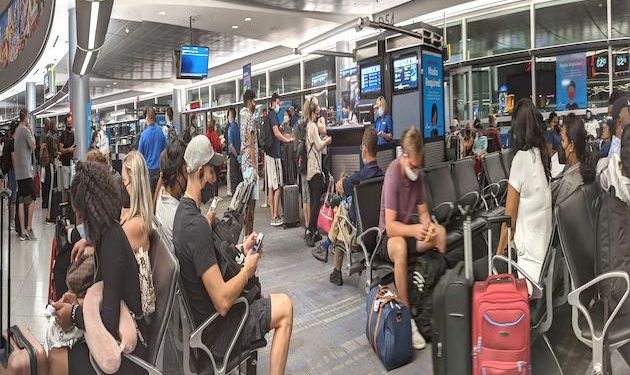- The White House has issued orders containing details of new U.S. international travel policies, as borders will again open to foreign travelers on November 8
- The AstraZeneca vaccine, used in Canada and Europe, will be accepted, but not the Russian-made Sputnik V vaccine and several others not approved by the WHO or the Food and Drug Administration
- Visitors are considered fully-vaccinated two weeks after their second dose in a two-dose series, or two weeks after a single-dose vaccine
WASHINGTON D.C.: The White House has issued orders containing details of new U.S. international travel policies, as borders will again open to foreign travelers on November 8.
On the same day, the U.S. borders with Canada and Mexico will also reopen to vaccinated visitors for tourism and other nonessential travel.
The U.S. Centers for Disease Control and Prevention confirmed that all FDA-approved and authorized vaccines, as well as vaccines with an “Emergency Use Listing” from the World Health Organization, will be accepted for entry into the U.S.
The AstraZeneca vaccine, used in Canada and Europe, will be accepted, but not the Russian-made Sputnik V vaccine and several others not approved by the WHO or the Food and Drug Administration.
Visitors are considered fully-vaccinated two weeks after their second dose in a two-dose series, or two weeks after a single-dose vaccine.
The CDC also confirmed that mixed-dose vaccinations will be accepted.
Unvaccinated Americans can still enter the country by air, but will face strict testing requirements.
According to the White House, unvaccinated U.S. citizens, legal permanent residents and any unvaccinated foreign nationals exempt from the vaccination requirement “will need to provide a negative test taken within one day of traveling.”
Travelers who are not fully vaccinated and allowed to travel to the U.S. by air are also required to take a test 3 to 5 days after arrival, as well as self-quarantine for a full 7 days, regardless of the results of their test.
Children under the age of 18 are exempt from the vaccination requirement, but are still subject to testing.
The White House also noted a other rare vaccination exceptions, including some COVID-19 vaccine clinical trial participants, those with medical complications, those who need to travel for emergency or humanitarian reasons, and others who are traveling on non-tourist visas from countries with low-vaccine availability.
All fully-vaccinated air travelers are required to provide a negative test within three days of their flight’s departure for the U.S.
Unvaccinated U.S. citizens, legal permanent residents and unvaccinated foreign nationals exempt from the vaccination requirement must take a COVID-19 test within one day of their flight.
Children younger than 2 do not need to test, but those from 2 to 17 are required to take a test before departure.
Unvaccinated children can test three days before departure of traveling with a fully vaccinated adult, and those traveling alone or with unvaccinated adults must be tested within one day of departure.
The new international travel system largely bars unvaccinated foreign nationals from entering the U.S., but those traveling for essential reasons, including truck drivers and students, will be allowed across borders until early January, regardless of vaccination status.
In early January, a vaccination requirement will go into effect for all foreign nationals crossing the borders by land or ferry.






